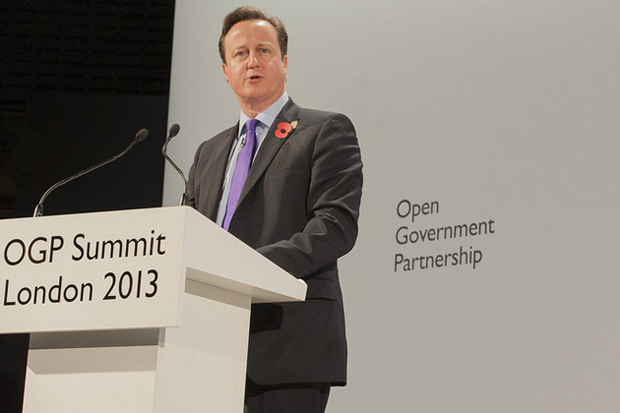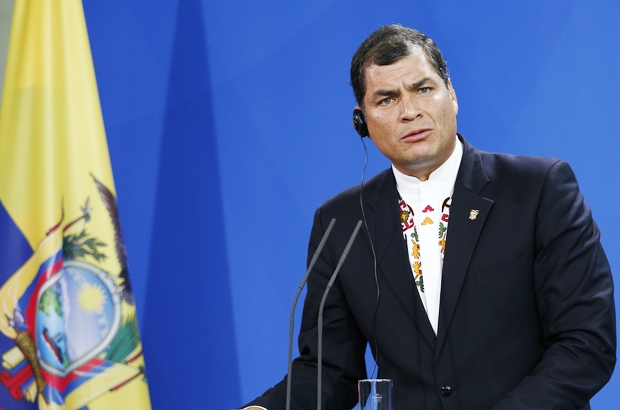Index relies entirely on the support of donors and readers to do its work.
Help us keep amplifying censored voices today.

State control of the press is hot topic. On Wednesday, Queen Elizabeth signed off a Royal Charter which gives politicians a hand in newspaper regulation. This come after David Cameron criticised the Guardian’s reporting on mass surveillance, saying “If they don’t demonstrate some social responsibility it will be very difficult for government to stand back and not to act”.
But what does state control of the press really look like? Here are 10 countries where the government keeps a tight grip on newspapers.
Bahrain
Press freedom ranking: 165
The tiny gulf kingdom in 2002 passed a very restrictive press law. While it was scaled back somewhat in 2008, it still stipulates that journalists can be imprisoned up to five years for criticising the king or Islam, calling for a change of government and undermining state security. Journalists can be fined heavily for publishing and circulating unlicensed publications, among other things. Newspapers can also be suspended and have their licenses revoked if its ‘policies contravene the national interest.’
Belarus
Press freedom ranking: 157
In 2009 the country known as Europe’s last dictatorship passed the Law on Mass Media, which placed online media under state regulation. It demanded registration of all online media, as well as re-registration of existing outlets. The state has the power to suspend and close both non-registered and registered media, and media with a foreign capital share of more than a third can’t get a registration at all. Foreign publications require special permits to be distributed, and foreign correspondents need official accreditation.
China
Press freedom ranking: 173
The country has a General Administration of Press, Publication, Radio, Film and Television and an army official censors dedicated to keeping the media in check. Through vaguely worded regulation, they ensure that the media promotes and toes the party line and stays clear of controversial topics like Tibet. A number of journalists have also been imprisoned under legislation on “revealing state secrets” and “inciting subversion.”
Ecuador
Press freedom ranking: 119
In 2011 President Rafael Correa won a national referendum to, among other things, create a “government controlled media oversight body”. In July this year a law was passed giving the state editorial control and the power to impose sanctions on media, in order to stop the press “smearing people’s names”. It also restricted the number of licences will be given to private media to a third.
Eritrea
Press freedom ranking: 179
All media in the country is state owned, as President Isaias Afwerki has said independent media is incompatible with Eritrean culture. Reporting that challenge the authorities are strictly prohibited. Despite this, the 1996 Press Proclamation Law is still in place. It stipulates that all journalists and newspapers be licensed and subject to pre-publication approval.
Hungary
Press freedom ranking: 56
Hungary’s restrictive press legislation came into force in 2011. The country’s media outlets are forced to register with the National Media and Infocommunications Authority, which has the power to revoke publication licences. The Media Council, appointed by a parliament dominated by the ruling Fidesz party, can also close media outlets and impose heavy fines.
Saudi Arabia
Press freedom ranking: 163
Britain isn’t the only country to tighten control of the press through royal means. In 2011 King Abdullah of Saudi Arabia amended the media law by royal decree. Any reports deemed to contradict Sharia Law, criticise the government, the grand mufti or the Council of Senior Religious Scholars, or threaten state security, public order or national interest, are banned. Publishing this could lead to fines and closures.
Uzbekistan
Press freedom ranking: 164
The Law on Mass Media demands any outlet has to receive a registration certificate before being allowed to publish. The media is banned from “forcible changing of the existing constitutional order”, and journalists can be punished for “interference in internal affairs” and “insulting the dignity of citizens”. Foreign journalists have to be accredited with the Ministry of Foreign Affairs.
Vietnam
Press freedom ranking: 172
The 1999 Law on Media bans journalists from “inciting the people to rebel against the State of the Socialist Republic of Vietnam and damage the unification of the people”. A 2006 decree also put in place fines for journalists that deny “revolutionary achievements” and spread “harmful” information. Journalists can also be forced to pay damages to those “harmed by press articles”, regardless of whether the article in question is accurate or not.
Zimbabwe
Press freedom ranking: 133
The country’s Access to Information and Protection of Privacy Act gives the government direct regulatory power over the press through the Media and Information Council. All media outlets and journalists have to register with an obtain accreditation from the MIC. The country also has a number of privacy and security laws that double up as press regulation, The Official Secrets Act and the Public Order and Security Act.
This article was originally posted on 1 Nov 2013 at indexoncensorship.org.
Proposed laws will not calm President Correa’s stormy relationship with the press, says Padraig Reidy

Ecuadorian president Rafael Correa. Pic: Reynaldo C Paganelli/Demotix
 Wikileaks founder Julian Assange has been granted political asylum in Ecuador. The Australian national, who has been living in the Ecuadorian embassy in London for two months after breaching his bail conditions in the UK, is wanted in Sweden, where allegations of sexual assault have been made against him. The Ecuadorian foreign ministry said it was not confident that Assange would not be extradited to the United States should he return to Sweden. Assange has been heavily criticised in the US for publishing secret diplomatic cables, but as yet no charge has been brought against him.
Wikileaks founder Julian Assange has been granted political asylum in Ecuador. The Australian national, who has been living in the Ecuadorian embassy in London for two months after breaching his bail conditions in the UK, is wanted in Sweden, where allegations of sexual assault have been made against him. The Ecuadorian foreign ministry said it was not confident that Assange would not be extradited to the United States should he return to Sweden. Assange has been heavily criticised in the US for publishing secret diplomatic cables, but as yet no charge has been brought against him.
Private Bradley Manning, alleged to be the source of the cable leak, has been in the US since July 2010, where he faces several charges including “aiding the enemy”.
Ecuadorian president Rafael Correa has previously appeared as a guest on Julian Assange’s Russia Today interview programme. The South American country has faced criticism for its record on free speech.
UPDATE: The British Foreign Office has released this statement
We are disappointed by the statement from Ecuador’s Foreign Minister that Ecuador has offered political asylum to Julian Assange.
Under our law, with Mr Assange having exhausted all options of appeal, the British authorities are under a binding obligation to extradite him to Sweden. We shall carry out that obligation. The Ecuadorian Government’s decision this afternoon does not change that.
We remain committed to a negotiated solution that allows us to carry out our obligations under the Extradition Act.
Ecuadoran President Rafael Correa has personally attacked Gustavo Cortez, editor of the leading daily newspaper El Universo. During a TV broadcast on Saturday the President accused the newspaper editor of being “wicked” and “of having bad faith.” Whilst showing a photograph of the editor, Correa called on the people of Ecuador to remember Cortez as a “clear example of the bad press in the country.”